By David Horn
After the rains, the red gave way to silver. Sand peeled back from the scrub like a scab lifting from old skin. I wasn’t supposed to be out past Maralinga’s line, but the drone flagged movement — metal glinting where there shouldn’t be any. Beneath a rusted comms dish and the ribs of collapsed radar towers, I found the basin.
It was too deliberate to be a crater or a sinkhole — smooth as bone, rimmed with quartz-like ridges, shallow as a birdbath. At the center stood a narrow obelisk no taller than my thigh, made of something darker than iron. It clicked once.
I stayed still, the way you do when an animal’s watching.
Click.
A bead of water fell from the tip of the obelisk and struck the basin with a sound too sharp for something so soft.
I called it in as debris. No one followed up.
Later, I found it in the restricted archive — half a page in a redacted folder labeled:
Temporal Disturbances – Woomera B.” Handwritten in the margin: Do not approach post-storm activity. Clock begins.
It had been buried, maybe for decades. Maybe longer. It wasn’t ours. Not quite. The lab said the material wasn’t metal, exactly — more like chitin under pressure. The obelisk pulsed faintly when exposed to light. But it didn’t drip for weather. It dripped for loss.
Drop one came after a news report out of Queensland. The last known Northern gastric-brooding frog — extinct since the eighties — was declared “functionally de-extinct” in a lab, then promptly died within hours. I checked the basin. One drop, dry on the rim.
Drop two followed a report that the final speaker of Marrgu, a coastal language from Arnhem Land, had passed in her sleep.
By drop five, I’d stopped logging rainfall.
It wasn’t time it was counting. It was endings.
Sometimes the clock skipped days. Other times, it clicked three times in a single hour. I traced one to a mass fish death in a river west of Broken Hill. Another to a buried report that an Indigenous burial site had been paved over by a mining road. The drip came before the report hit the media.
It was predictive.
The basin stayed dry but resonated faintly each time the drop fell — as if remembering the weight of what once filled it.
I brought recorders. Calipers. Drones. None of them worked for long. Power drained. Readings blurred. But the drops kept falling, never from moisture. The desert was dry as ever. Yet the obelisk bled extinction.
By drop twelve, I stopped sending updates. Instead, I began reading names aloud. Not just species, but languages, places, songs. I read them to the obelisk like prayer. Sometimes, the water shimmered in midair before falling. Sometimes, it held.
Drop sixteen came the night the Bureau announced the Great Barrier Reef had entered terminal collapse. The drip landed like a chisel.
The basin cracked.
I wept then, because the sound reminded me of my mother’s voice when she told me the old stories — how the land knew more than we ever would, how some things don’t mourn out loud.
Drop twenty-two didn’t fall. It hovered. Still as glass. Waiting.
I felt it before I knew it: the name it carried was mine.
The obelisk had grown. Not taller, but deeper, as if what it held had thickened with time.
I waited beside it that night. Camped just beyond the basin’s edge, notebook in hand. The wind moved strangely here. South when it should’ve been east. Dry but smelling of ocean.
The drop still hovers. It trembles sometimes, when the wind shifts or the stars roll overhead in certain patterns. But it hasn’t fallen. Not yet.
Maybe it’s not just me. Maybe it waits for the last note of a forgotten song. The final spark of something unrecorded.
Or maybe it waits for someone to say no more.
I’ve kept no log. No files, no footage. Only memory.
The desert doesn’t need reports. It needs witnesses.
So I stay.
And I listen.
![]()
About the Author
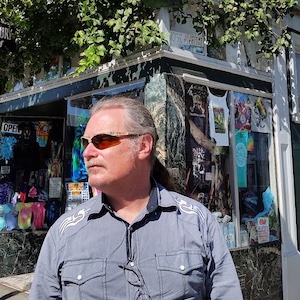 David Horn writes speculative fiction from the edge of the American Midwest, where the skies are wide and the stories stranger than they should be.
David Horn writes speculative fiction from the edge of the American Midwest, where the skies are wide and the stories stranger than they should be.
His work explores the boundary between memory and myth, often through a lens of ecological or cultural haunting.
He recently published Signals from the Edge, an anthology of original short stories that blend science fiction, folklore, and quiet horror — as well as the satirical Beach Blanket Shark Attack, a loving spoof of 1960s creature features.
When he’s not writing, David works in cybersecurity and plays guitar, mandolin, and banjo with marginal competence and great enthusiasm — sometimes simultaneously, to mixed results.
He lives in Colorado, USA.




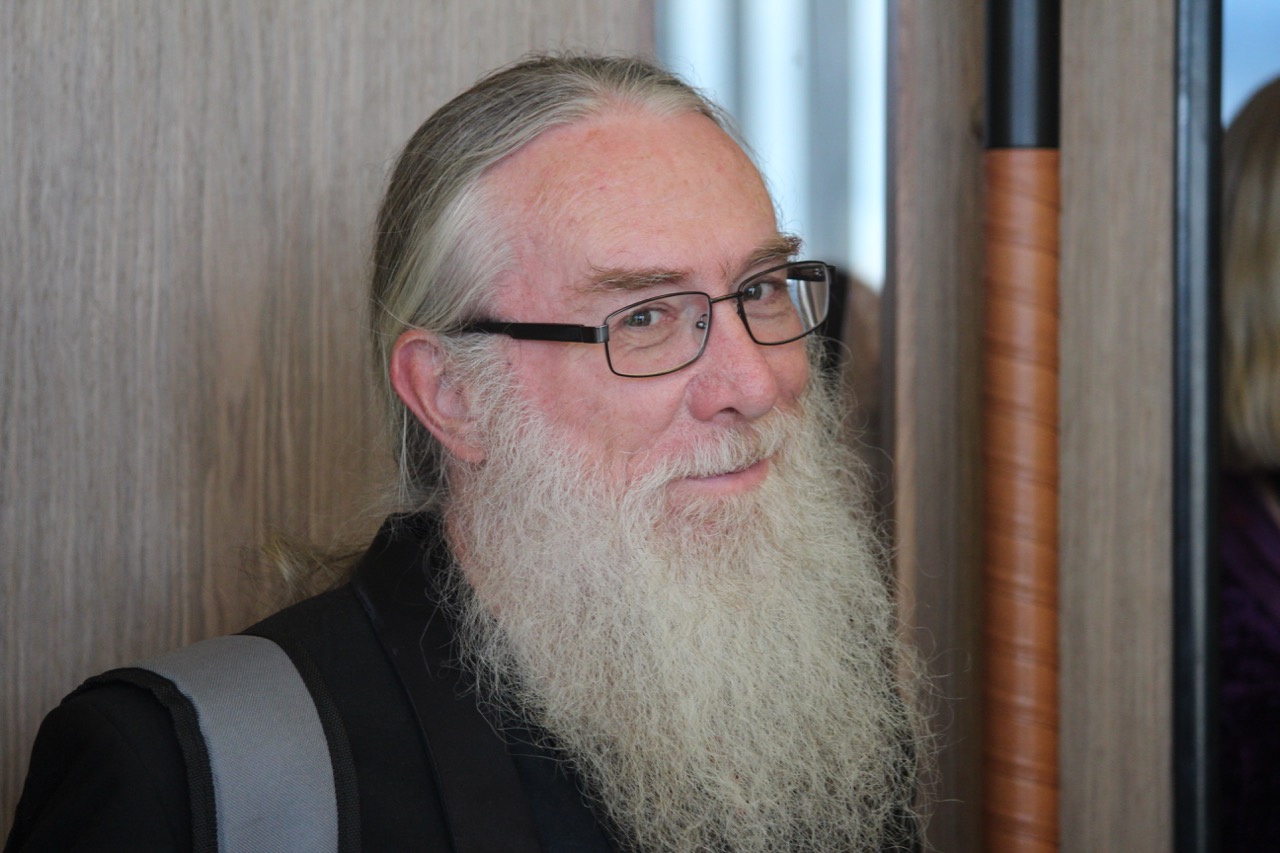
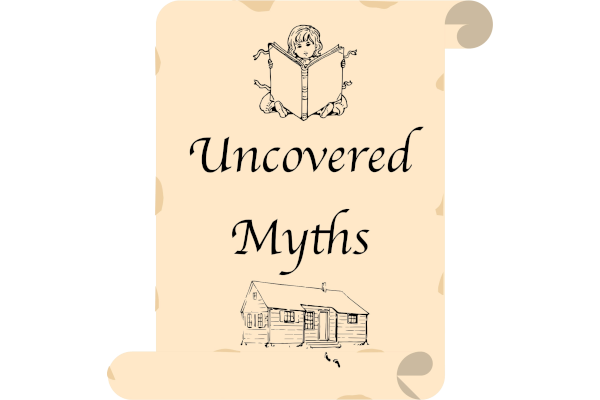


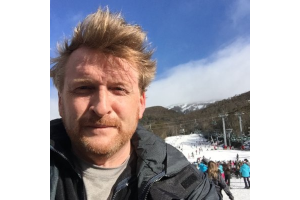



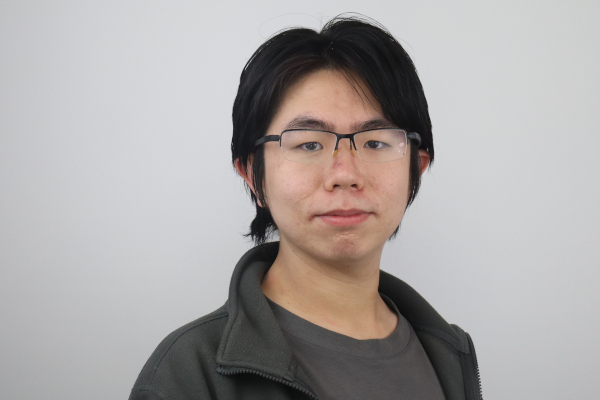


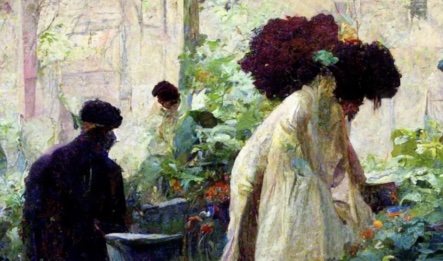

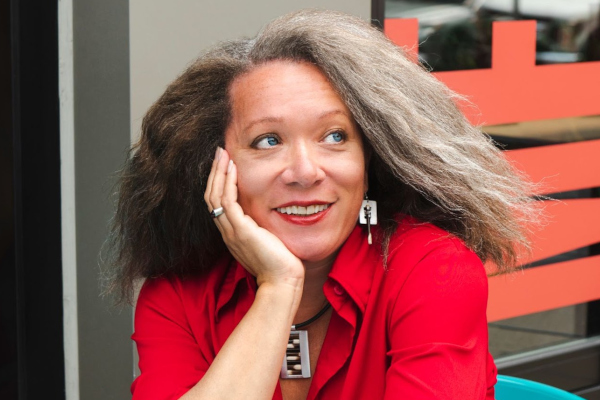
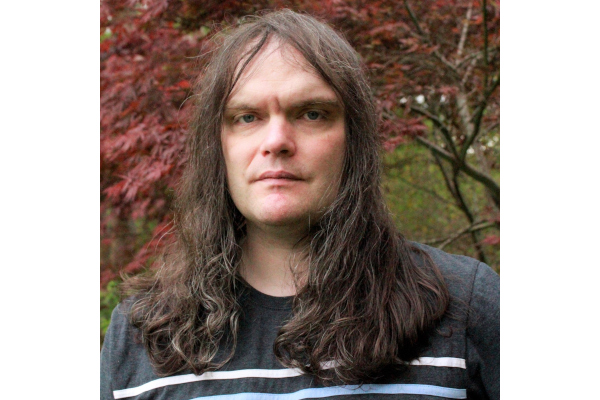
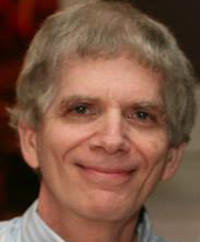 Barry Yedvobnick is a recently retired Biology Professor. He performed molecular biology and genetic research, and taught, at Emory University in Atlanta for 34 years. He is new to fiction writing, and enjoys taking real science a step or two beyond its known boundaries in his
Barry Yedvobnick is a recently retired Biology Professor. He performed molecular biology and genetic research, and taught, at Emory University in Atlanta for 34 years. He is new to fiction writing, and enjoys taking real science a step or two beyond its known boundaries in his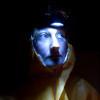
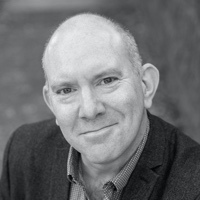 Alistair Lloyd is a Melbourne based writer and narrator who has been consuming good quality science fiction and fantasy most of his life.
Alistair Lloyd is a Melbourne based writer and narrator who has been consuming good quality science fiction and fantasy most of his life.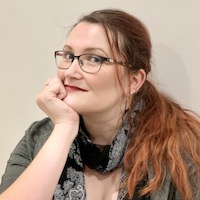 Emma Louise Gill (she/her) is a British-Australian spec fic writer and consumer of vast amounts of coffee. Brought up on a diet of English lit, she rebelled and now spends her time writing explosive space opera and other fantastical things in
Emma Louise Gill (she/her) is a British-Australian spec fic writer and consumer of vast amounts of coffee. Brought up on a diet of English lit, she rebelled and now spends her time writing explosive space opera and other fantastical things in Ed lives with his wife plus a magical assortment of native animals in tropical North Queensland.
Ed lives with his wife plus a magical assortment of native animals in tropical North Queensland. Mark is an astrophysicist and space scientist who worked on the Cassini/Huygens mission to Saturn. Following this he worked in computer consultancy, engineering, and high energy research (with a stint at the JET Fusion Torus).
Mark is an astrophysicist and space scientist who worked on the Cassini/Huygens mission to Saturn. Following this he worked in computer consultancy, engineering, and high energy research (with a stint at the JET Fusion Torus).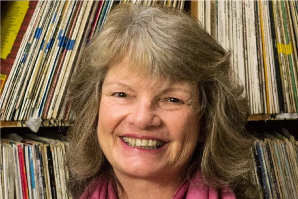 My time at Nambucca Valley Community Radio began back in 2016 after moving into the area from Sydney.
My time at Nambucca Valley Community Radio began back in 2016 after moving into the area from Sydney.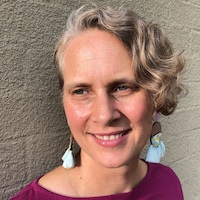 Merri Andrew writes poetry and short fiction, some of which has appeared in Cordite, Be:longing, Baby Teeth and Islet, among other places.
Merri Andrew writes poetry and short fiction, some of which has appeared in Cordite, Be:longing, Baby Teeth and Islet, among other places. Geraldine Borella writes fiction for children, young adults and adults. Her work has been published by Deadset Press, IFWG Publishing, Wombat Books/Rhiza Edge, AHWA/Midnight Echo, Antipodean SF, Shacklebound Books, Black Ink Fiction, Paramour Ink Fiction, House of Loki and Raven & Drake
Geraldine Borella writes fiction for children, young adults and adults. Her work has been published by Deadset Press, IFWG Publishing, Wombat Books/Rhiza Edge, AHWA/Midnight Echo, Antipodean SF, Shacklebound Books, Black Ink Fiction, Paramour Ink Fiction, House of Loki and Raven & Drake Tara Campbell is an award-winning writer, teacher, Kimbilio Fellow, fiction co-editor at Barrelhouse, and graduate of American University's MFA in Creative Writing.
Tara Campbell is an award-winning writer, teacher, Kimbilio Fellow, fiction co-editor at Barrelhouse, and graduate of American University's MFA in Creative Writing.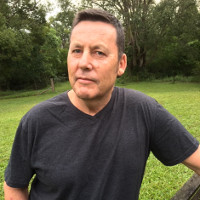 Tim Borella is an Australian author, mainly of short speculative fiction published in anthologies, online and in podcasts.
Tim Borella is an Australian author, mainly of short speculative fiction published in anthologies, online and in podcasts.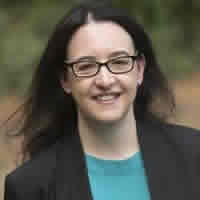
 Sarah Jane Justice is an Adelaide-based fiction writer, poet, musician and spoken word artist.
Sarah Jane Justice is an Adelaide-based fiction writer, poet, musician and spoken word artist.